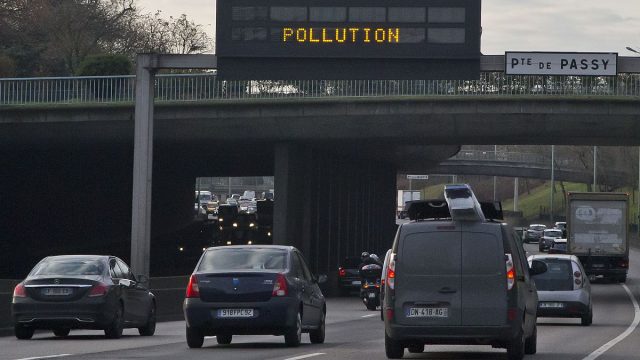A Danish study has concluded that different types of pollution, depending on whether it is acoustic or atmospheric, affect the fertility of men and women differently.
Men exposed to air pollution for an average of five years have a higher risk of infertilityaccording to a new study in Denmark, which has found that signs of the impact of microscopic air particles on fertility affect women differently.
This research, carried out nationally and published this Wednesday in the ‘British Medical Journal’ (BMJ), has also detected a relationship between noise pollution and the fertility of women between 35 and 45 years olda relationship that until now had not been considered. Noise pollution has also been related, although in a milderwith infertility in men aged 37 to 45, according to researchers.
Based on data from residents in Denmark, the study sampled the male and female population between 30 and 45 years old who cohabit or are married and with less than two sons or daughters, between 2000 and 2017. The research was designed to include “a large number of people who are actively trying have children.”
The study included a total of 526,000 men and 377,000 women. Of them, around 16,000 men and 22,6000 women received a infertility diagnosis. Individuals with a previous diagnosis or those who had undergone surgical operations that prevented them from having children were excluded from the sample.
The findings that relate different types of pollution with a higher risk of infertility were consistent among the different socioeconomic groups and with respect to the area of residence, whether urban, suburban or rural.
“As many Western countries face a decline in birth rates and an increase in maternal age at the time of the birth of the first child, it is crucial to know the environmental pollutants that affect fertility,” explained the authors of the study.
Most frequent contaminants
The study focused on long-term exposure to traffic noise and the contamination by particlescalled PM 2.5, which is found in the waste of exhaust pipes of vehicles and smoke from power plants. Previous research had discovered that this type of air pollution is related to a lower sperm qualityparticularly its motility and quantity.
These two are “the most frequent pollutants in urban environments, so for us it seemed logical to start there and focus on these two major pollutants of our lives everyday”, he declared to Euronews Health Mette Sørensen, first author of the study and senior scientist at the Danish Cancer Society.
He explained that they focused on noise pollution because it is known that it has an impact on the stress and the dream and affects “other diseases, such as cardiovascular diseases and diabetes.” “Our hypothesis was that if you are stressed, if your sleep is disturbed, this could also impact your fertility,” Sørensen said.
The researchers had access to the addresses of the participants through the civil registration system, and used mathematical models to make an estimate of the level of particle pollution based on the vehicles or boats close to the home, and acoustic models to estimate noise pollution.
More research is needed
“Although the investigation is commendable, it was necessary certain estimates and assumptions, such as traffic noise and pollution levels in each area, and the study could not take into account environmental exposure outside the home, such as in the workplace,” Alison Campbell, scientific director of Care Fertility and honorary professor at the University of Kent, in the United Kingdom, said in a statement.
“Although noise has not been studied much in relation to fertility, there is evidence to suggest a relationship between noise-induced stress noise and sleep disorderswhich could also affect fertility,” added Campbell, who was not involved in the study.
“Previous studies have already shown that air pollution affects the sperm qualityalthough the evidence on its impact on female fertility are disparate, which underlines the need to continue researching in this field,” he assured.
Sørensen has also pointed out that one of the interesting conclusions of his study was that there was no minimum threshold from which these pollutants would not be harmful to the Danish population.
The study was observationaltherefore it did not determine a causal relationship between contamination and infertility. But if these results are confirmed in future studiesthe researchers have concluded, “suggests that the policy implementation of air and noise pollution mitigation measures may be important tools to improve birth rates in the West.”







